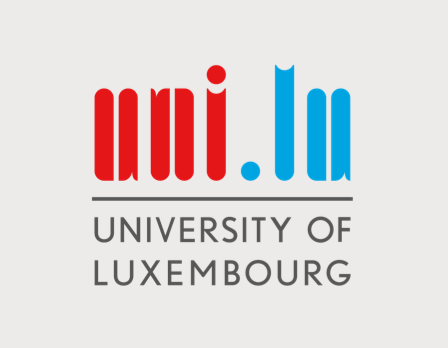Digital transformation is upending the financial services industry and traditional financial system. Examples are abound: the rise of robo-advisors have allowed people — including those with limited capital — to invest their money without stepping foot in a bank. Online banking has made it easy for us to pay our bills or send money to family or friends. E-wallets are encouraging cashless societies. Digitisation by now carries measurable socio-economic implications to our everyday lives, too.
In the years ahead, experts predict the digital transformation in finance — where cloud-based ERP, automation, and cognitive innovation continue apace — will spur opportunities to radically simplify processes and free up people. Blockchain is set to boost this trend.
As digital transformation picks up speed, forward-looking finance professionals might find themselves collaborating more intensively with experts of different domains in the workplace.
Digital Transformation in Finance: A forward-looking study programme

Modern architecture in Kirchberg district in Luxembourg city. Source: Shutterstock
Meeting the future challenges of digitisation in Finance, the University of Luxembourg offers a one-year study track, called “Digital Transformation in Finance”, which is being designed and implemented by the Department of Finance of the University. This study track spans over the second year of a two-year long MSc Study Programme in Finance and Economics, being one of the most prominent MSc Study Programmes of the University’s Faculty of Law, Economics and Finance (FDEF). It is also open to candidates who hold a four-year degree, meaning they can join the M2 without having done the M1 at the University of Luxembourg.
As Dr. Zsófia Kräussl, the Course Director indicates: “The Digital Transformation in Finance study track is an ideal choice if you’re curious to learn about the future challenges of the financial ecosystem, and if you’re interested in seeking technology-intensive alternatives to problems that characterise the traditional financial infrastructure.”
The study track trains students to become creative, forward-looking finance professionals for their future career. Students following the track gain competences to think out-of-the-box, and skills to collaborate with IT professionals in the workplace. The courses in this interdisciplinary track are also organised in cooperation with the Department of Law (FDEF), supported by Professor Dirk Zetzsche (ADA Chair in Financial Law and Inclusive Finance), with the Department of Mathematics and the Department of Computer Science at the Faculty of Science, Technology and Medicine (FSTM) as well as with the SnT, Interdisciplinary Centre for Security, Reliability and Trust, supported by Professor Gilbert Fridgen (PayPal-FNR PEARL Chair in Digital Financial Services).
Through the study programme, students learn about traditional institutional processes and market infrastructure with emerging, IT-intensive solutions. Students will also enjoy state-of-the-art academic knowledge in Finance and Economics related to technology adoption and diffusion. The study track instrumentalises problem-based learning, enabling students to apply the gained academic knowledge to real-life, industry-strength cases that are provided by business professionals of the global financial sector.
Research prowess Luxembourg is the gateway to the future in Finance

Renowned for its efficient banking sector, Luxembourg is an ideal platform for dynamic business activities. Source: Ina Fassbender/AFP
The University of Luxembourg has one mission: to gain the highest standards of international excellence in research and teaching.
It is a European hub for research and teaching and well-integrated in a framework of international partnerships. The university offers a suite of programmes, including 14 bachelor degrees, 42 master degrees and doctoral education as well as 16 vocational training and lifelong learning training courses.
University campuses are located in the Grand Duchy of Luxembourg where venues for artistic expressions, such as museums, theatres and concert halls, abound.
Cosmopolitan at every level, the city of Luxembourg has a population of over 120,000 people; more than 70% of whom are foreign residents of some 170 nationalities. Located in the heart of Europe, it is accessible to students from countries such as Germany, France, and Belgium, to name a few. It is also one of the institutional seats of the European Union, hosting the Secretariat of the European Parliament and the European Court of Justice.
It’s a location that bodes well for Digital Transformation in Finance students. Start with the fact that it is renowned for its efficient banking and investment fund sectors. It is the second biggest centre for fund management in the world, behind the US. Banking business models here range from international private and wealth management to corporate finance and fund services.
“Luxembourg being a first-rate financial centre, it is very likely that I will practise my profession there,” says MSc in Finance and Economics graduate Céline Fontaine from France, who now works as a financial analyst at Deloitte Luxembourg.
More importantly, however, are its strategic perks for financial technology firms. Known as the “new Eldorado for European fintechs,” it provides a unique and complete local ecosystem for entrepreneurs, e-commerce institutions and fintech players in the region. Here, one gets the best of both worlds: the burgeoning tech sector and the know-how of financial professionals.
Financial professionals and products here are regulated by the Commission de Surveillance du Secteur Financier, known for its rigour and support to the sector. They also rely and comply with the most rigorous international standards, such as in the areas of confidentiality and security. Relevant players — public, private and supervisory — have open and constructive dialogue. Taken together, these factors provide an environment that is conducive for new business models and new players in digital finance.
In short, there could not be a more fitting city for Digital Transformation in Finance students to seek experiential learning opportunities from. To learn more about this dynamic interdisciplinary study track, click here.
Follow the University of Luxembourg’s Faculty of Law, Economics and Finance on Facebook, Twitter, and LinkedIn.













